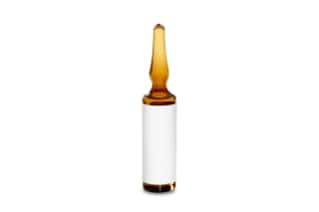
|
Separation Mode |
Reversed Phase |
|
Detection Method |
Conductivity |
|
Formulation |
Liquid |
|
Storage Condition |
Room Temperature |
|
System Type |
LC |
|
Shelf Life |
24 Months |
|
Shipping Condition |
Ambient |
|
Volume |
10 mL |
|
Type |
Qualification |
|
UNSPSC |
41116107 |
|
Application |
System Performance |
|
Product Type |
Standards |
|
Units per Package |
1 pk |
Conductivity Detector OQ/PQ Solution
The Conductivity Detector OQ/PQ Solution is designed to ensure that HPLC systems based on the 432 Conductivity Detector meet operational requirements. A Waters qualified engineer or user can use this kit as part of a performance maintenance or qualification operation. Protocols for using this kit can be purchased as part of Waters qualification services or as part of a self-directed qualification training and license. The kit contains Qty 2 Flow Cell Constant Solution: 1 mM potassium chloride salt in water, 10 mL in an ampule. Qty 1 OQ/PQ Solution, 500 ppm chloride, 1000 ppm bromide in water, 10mL in an ampule.
The Conductivity Detector OQ/PQ Solution can be used for HPLC with RI, ELSD, Electrochemical or Conductivity Detection. The Conductivity Detector OQ/PQ Solution kit can be used to provide calibration and assessment of various detectors, including Refractive Index, Conductivity, Evaporative Light Scattering, and Electrochemical detection. It is highly recommended to use the best laboratory practices when handling the Conductivity Detector OQ/PQ Solution and to safely store the solution at room temperature and pressure conditions.
The right lab equipment will significantly enhance your productivity and efficiency. You can review the complete range of lab equipment offerings from Waters, such as the Conductivity Detector OQ/PQ Solution, or to find additional solutions, standards, and products that are compatible with it, check out our shop for lab equipment; you can browse through our website, or refer to our catalog and ensure your lab needs are met as needed.
You may also be interested in checking out the AutoPurification System Standard; The Portfolio of Quality Control Reference Materials is a one-of-a-kind collection of standards and mixtures. Before analyzing vital material, these items allow the user to analyze and benchmark their chromatography equipment. The goods in the range have all been uniquely designed using Waters scientists' expertise. Thionin, Thioflavin, and Crystal Violet are among the three substances found in the AutoPurification Dye Standard. Through fraction collection, this standard mix is utilized to confirm the benchmark performance of a Preparative/Purification System. This QCRM was created with the goal of allowing the user to double-check fraction collecting. This test is critical to run on the first use/installation of the system, as well as each time the system hasn't been used or has had any changes.
Are There Any Significant Impacts Of Temperature On Liquid Chromatography?
Chromatography is a sequence of equilibrium processes in which analytes are either dissolved in the mobile phase of the column or adsorbed to the stationary phase. When the temperature is higher, the analytes are exchanged more quickly between the mobile and stationary phases. As a result, greater temperatures hasten the analysis.